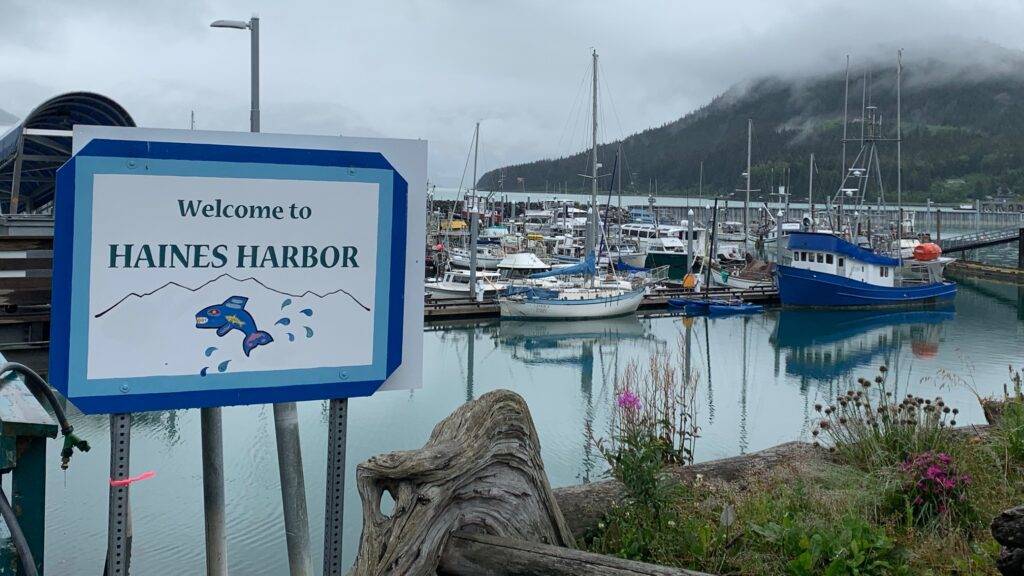
On a wet Tuesday afternoon, the local gillnet fleet returns to the Haines Small Boat Harbor. The two day window for commercial gillnetting in the Lynn Canal has closed for the week.
As they step off their boats onto the docks, most of the fishermen are reluctant to talk about how the season has been. One man jokes that he is going to go home and cry. As he fillets fish on his boat, local fisherman Norm Hughes explains that there just aren’t a lot of chum salmon this year.
“The chums are a surprise that they returned at such a reduced level, and they were really small,” Hughes says. “So something is going on in the ocean in my opinion, but that’s worth about as much as this cut bait here.”
According to Alaska Department of Fish and Game’s latest Southeast Alaska salmon fishery update, the chum run is essentially over.
Many Haines gillnetters rely on hatchery chum salmon released by Douglas Island Pink and Chum (DIPAC). Southeast Alaska fishermen have caught 640,000 DIPAC chum salmon this summer — far below DIPAC’s projected harvest of 1.6 million chums. According to an update on DIPAC’s website, the poor return has been shocking because the fry released in the years leading up to 2020 were healthy and numerous.
Hughes says he doesn’t just fish for salmon, but some newer fishermen aren’t so lucky.
“At least I have a crab permit, and I can do that. A lot of these guys, the gillnet permit is all they got. They’re getting started in life and they’ve got a boat and a permit, and that’s all they got,” Hughes says.
Across the board, the COVID-19 pandemic has disrupted demand for seafood, and fishermen are facing lower prices for their catch.
Some relief funds are available for the fishing industry. The state is offering business grants to commercial fishermen, and the federal government is offering payroll protection loans for crew members. The Haines Borough has also offered to help cover moorage fees.
Hughes says he hasn’t applied for any relief funding yet because he’s still weighing his options. He’s not sure if applying for a certain grant would make him ineligible for other funding and which forms of economic relief would make the most difference for him. Right now, he doesn’t have time to do that research.
“I’m busy chasing pots. I’m busy fishing net. I got to repair the net, got to ice the boat, got to fuel the boat, got to clean the hatches, got to get the grub,” Hughes says.
In Haines, the sockeye salmon runs to Chilkat and Chilkoot Lake are starting to pick up. About 40,000 fish have been counted at Chilkoot Lake, exceeding Fish and Game’s lower escapement goal. Sockeye returns to Chilkat Lake are below average, but recent flooding and water current reversals have led to lower counts.
The Link LonkAugust 07, 2020 at 11:02PM
https://ift.tt/2PvG5Js
Haines fishermen struggle with weak chum salmon returns and low fish prices - KTOO
https://ift.tt/35JkYuc
Fish
No comments:
Post a Comment